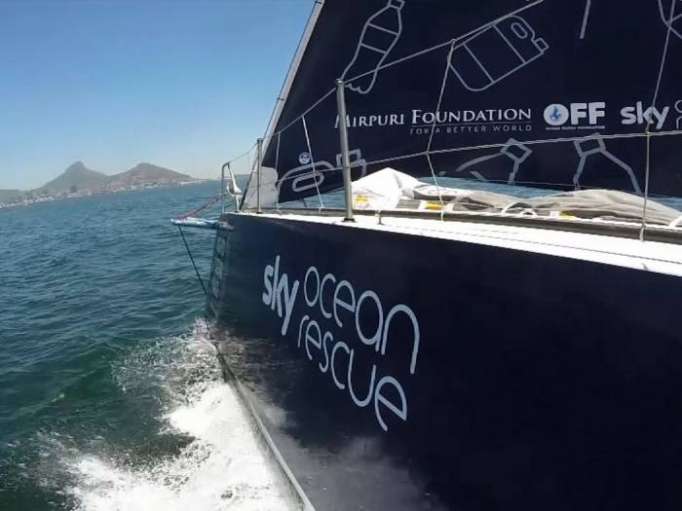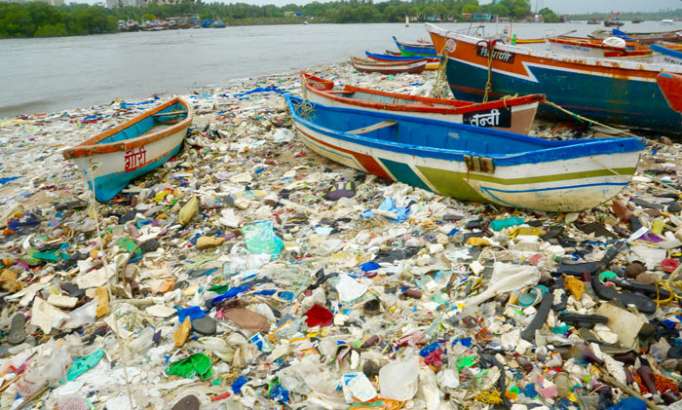Plastic pollution has reached the remotest spot in the world, according to new data.
Tiny particles of microplastic have been detected at Point Nemo in the Southern Ocean, which is nearly 1,700 miles from the nearest inhabited land.

Point Nero is nearly 1,700 miles from the nearest inhabited land.
It is so remote that the closest humans are often astronauts orbiting 240 miles above the planet aboard the International Space Station.
Point Nemo has never been sampled before, but yachts racing in an elite sailing competition have detected between nine and 27 pieces of microplastics per cubic metre.

The results show microplastic has become 'pervasive', says Dr Soren Gutekunst
Two of the vessels in the round-the-world Volvo Ocean Race have been equipped with a filtration system which collects seawater samples.
One of the yachts competing in the eight-month race, Turn The Tide On Plastic, has teamed up with Sky Ocean Rescue to campaign for a better understanding over the issue of plastic pollution in our oceans and inspire people to take action in their day-to-day lives.
The latest seawater sample results come from leg seven, which set off from Auckland in New Zealand and finished in Itajai in Brazil.
As the boats sailed close to Cape Horn, a treacherous area at the tip of South America, levels increased to 57 particles per cubic metre.
The proper name for the furthest point from land is the "oceanic pole of inaccessibility". But the point is nicknamed Nemo, which means "no one" in Latin.

Turn The Tide On Plastic yacht is competing in the Volvo Ocean Race and shining the spotlight on plastic pollution
Dr Soren Gutekunst of the GEOMAR Institute for Ocean Research Kiel, funded by the Cluster of Excellence Future Ocean, analysed the preliminary microplastics data at the laboratory in Kiel, Germany. He said microplastic had become pervasive.
"This means that even if I put a plastic bottle in the River Thames, maybe at some point I will find microplastics from this bottle down in South Africa," he added.
Turn The Tide On Plastic has been carrying out sampling since the race started in Europe last year. The highest concentrations of microplastic have been found around the Mediterranean and the South China Sea.
Skipper Dee Caffari told Sky News: "One of the things we've really succeeded in is communicating our message of changing people's behaviour and attitude to single use plastics, and it's something we genuinely believe in and are passionate about."
















































